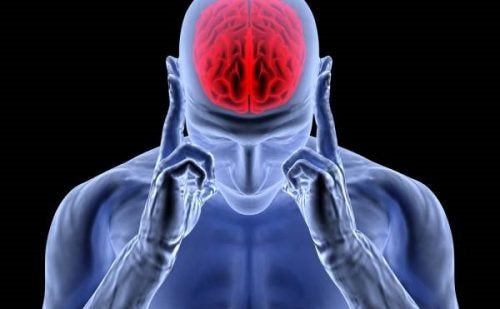Introduction:
Stress is a normal part of life for everybody, but chronic stress can have significant effects on your brain and mental health. When left uncontrolled, stress not only affects the body but also has an extensive effect on cognitive performance, control of emotions, and general brain health. As a medical expert, I have seen personally how stress can impair brain function. In this post, I'll explain how stress affects your brain and provide 5 brain health tips to improve your mental health.

How Does Stress Impact Your Brain
When your body is stressed, it makes chemicals like cortisol and adrenaline. These growth hormones are vital for the fight-or-flight response, which allows you to respond to acute threats. Short bouts of stress can sharpen focus while offering a temporary boost in performance. Chronic stress, which lasts for weeks, months, or even years, can have a negative impact on your brain.
Cognitive Decline and Memory Difficulties
Chronic stress has a major impact on memory and learning. Extended interaction with elevated levels of cortisol can harm the hippocampus, the brain area in charge of creating new memories and maintaining information. This can lead to issues with concentration, learning, and memory recall. Chronic stress can eventually affect your capacity to retain information, solve issues, and think effectively.For those facing brain-related problems, consulting a Brain Tumor Specialist Doctor in Nawanshahr, Punjab can provide expert guidance and treatment options to assist manage stress and its impacts on brain health.
Decreased Neuroplasticity
Neuroplasticity refers to the brain's capacity to modify itself by creating new neural connections. Stress can impair neuroplasticity, especially in parts of the brain responsible for emotion control and decision-making, such as the prefrontal cortex. As a result, the brain's ability to adapt, and adopt new habits.
Increased Risk of Mental Health Problems
Long-term stress raises the chance of getting mental health issues such as anxiety, depression, and PTSD. Chronic activation of the stress response may interfere with the function of brain regions important for emotional regulation, resulting in increased emotional sensitivity and trouble controlling unpleasant emotions.
Rapid Brain Aging
Chronic stress may cause brain cells to age quicker, potentially increasing the risk of disease and other mental health disorders.
Also Read - 8 Important Health Tips for a Sharp Mind
5 Tips to Protect Your Mind
Develop Mindfulness and Meditation
Even a few minutes of mindfulness or meditation every day can help decrease stress hormones, keep emotional stability, and improve focus. These behaviors have been shown to promote gray matter, helping with cognitive performance. Dr. Jasdeep Singh Saini stresses that even five to ten minutes each day may enhance brain function.

Get Daily Physical Exercise
Physical activity not only boosts mood but also increases blood flow to the brain, leading to new brain cell growth. Aerobic activity, such as brisk walking, jogging, or swimming, is particularly effective at boosting memory and reducing anxiety. To reap the most benefits aim for at least 150 minutes of light exercise per week. Dr.Jasdeep Singh Saini, the best neurosurgeon in Balachaur, delivers specialist services at the Neu-Care Clinic, providing new techniques such as perforated brain surgery.
Get Quality Sleep
Sleep is essential for consolidated memories and mental healing. When we sleep, our brains conduct important tasks such as toxin removal and neuron circuit development. Poor sleep, on the other hand, can raise cortisol levels and impair cognitive functioning. Dr. Saini suggests creating a sleep pattern and aiming for 7-9 hours of sleep per night to boost cognitive function.

Participate in Cognitive Activities
Puzzles, reading, and learning a new skill are all examples of brain-challenging activities that help create new neural connections. Cognitive involvement has been related to better memory and slower brain aging, resulting in greater resistance to stress-induced cognitive loss.
Follow a Brain-healthy Diet
Consuming foods high in antioxidants, omega-3 fatty acids, and vitamins increases brain function. The Mediterranean way of life, which includes fruits, vegetables, lean proteins, and whole grains, has been shown to lower inflammation and prevent memory loss. Avoid excessive caffeine, sugar, and alcohol consumption, which can cause stress and impair memory.
Conclusion
While stress is a natural part of life, its adverse impact on brain health should not be ignored. Simple, successful techniques like meditation, exercise, quality sleep, cognitive engagement, and a good diet can help safeguard and improve your brain's resilience. Dr. Jasdeep Singh Saini, a well-known brain specialist doctor in Nawanshahr, stresses the importance of actively managing stress for good brain health. By carrying out these routines into your daily routine, you may protect your mind from the impacts of stress and promote long-term mental health.
